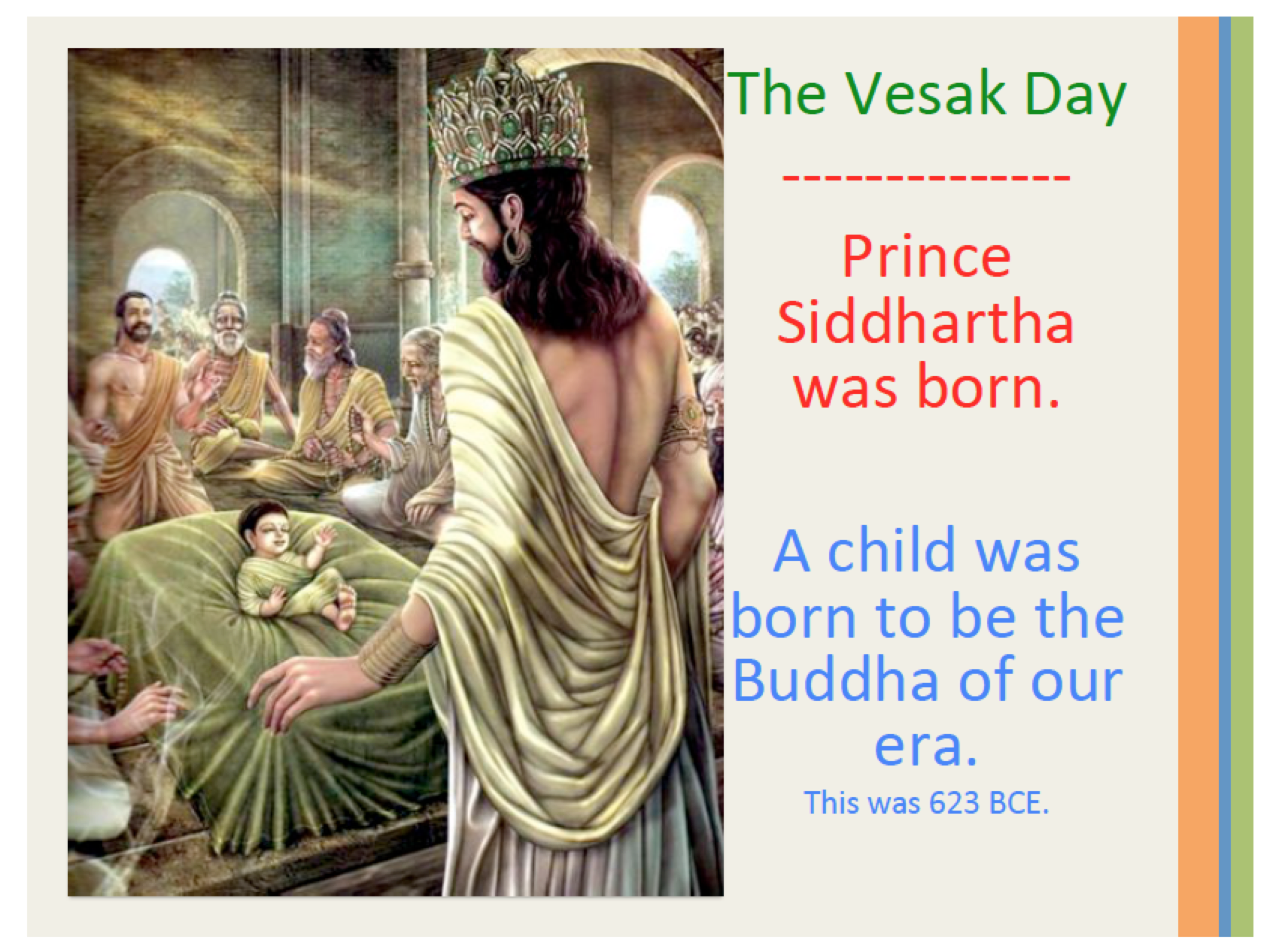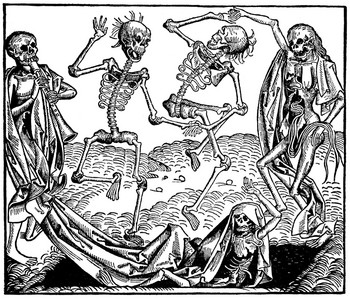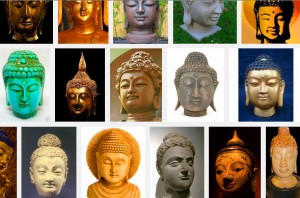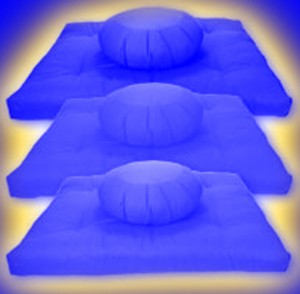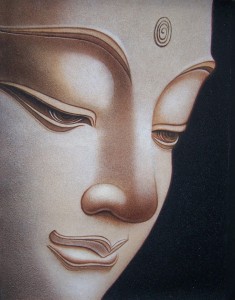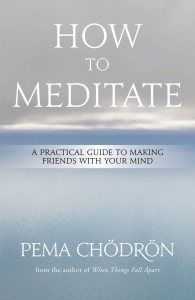
Pema Chodron, as useful and plain speaking a Western Buddhist teacher as you could hope to find, has a new book out called “How To Meditate: A Practical Guide to Making Friends with Your Mind” Below is an excerpt.
By Pema Chodron | Meditation teaches us how to let go. It’s actually a very important aspect of friendliness, which is that you train again and again in not making things such a big deal.
When you have pain in your body, when all sorts of thoughts are going through your mind, you train again and again in acknowledging them openheartedly and open-mindedly, but not making them such a big deal.
Generally speaking, the human species does make things a very big deal. Our problems are a big deal for us. So we need to make space for an attitude of honoring things completely and at the same time not making them a big deal.
It’s a paradoxical idea, but holding these two attitudes simultaneously is the source of enormous joy: we hold a sense of respect toward all things, along with the ability to let go. So it’s about not belittling things, but on the other hand not fanning the fire until you have your own private World War III.
Keeping these ideas in balance allows us to feel less crowded and claustrophobic. In Buddhist terms, the space that opens here is referred to as shunyata, or “emptiness.”
But there’s nothing nihilistic about this emptiness. It’s basically just a feeling of lightness. There is movie entitled The Unbearable Lightness of Being, but I prefer to see life from the view of the Bearable Lightness of Being.
When you begin to see life from the point of view that everything is spontaneously arising and that things aren’t “coming at you” or “trying to attack you,” in any given moment, you will likely experience more space and more room to relax into.
Your stomach, which is in a knot, can just relax. The back of your neck, which is all tensed up, can just relax. Your mind, which is spinning and spinning like one of those little bears that you wind up so it walks across the floor, can just relax. So shunyata refers to the fact that we actually have a seed of spaciousness, of freshness, openness, relaxation, in us.
Sometimes the word shunyata has been translated as the “open dimension of our being.” The most popular definition is “emptiness,” which sounds like a big hole that somebody pushes you into, kicking and screaming: “No, no! Not emptiness!”
Sometimes people experience this openness as boredom. Sometimes it’s experienced as stillness. Sometimes it’s experienced as a gap in your thinking and your worrying and your all-caught-up-ness.
I experiment with shunyata a lot. When I’m by myself and no one’s talking to me, when I’m simply going for a walk or looking out the window or meditating, I experiment with letting the thoughts go and just seeing what’s there when they go.
This is actually the essence of mindfulness practice. You keep coming back to the immediacy of your experience, and then when the thoughts start coming up, thoughts like, bad, good, should, shouldn’t, me, jerk, you, jerk, you let those thoughts go, and you come back again to the immediacy of your experience.
This is how we can experiment with shunyata, how we can experiment with the open, boundless dimension of being.”






